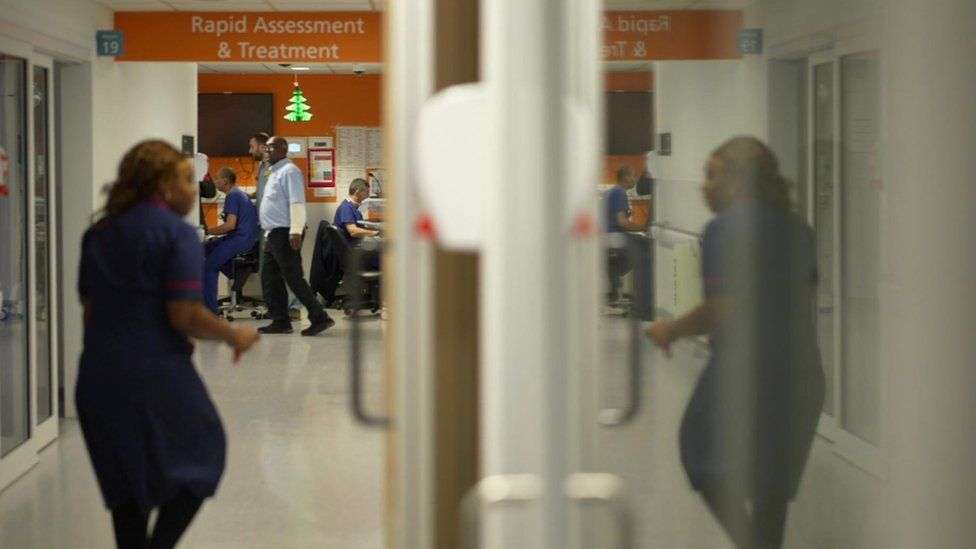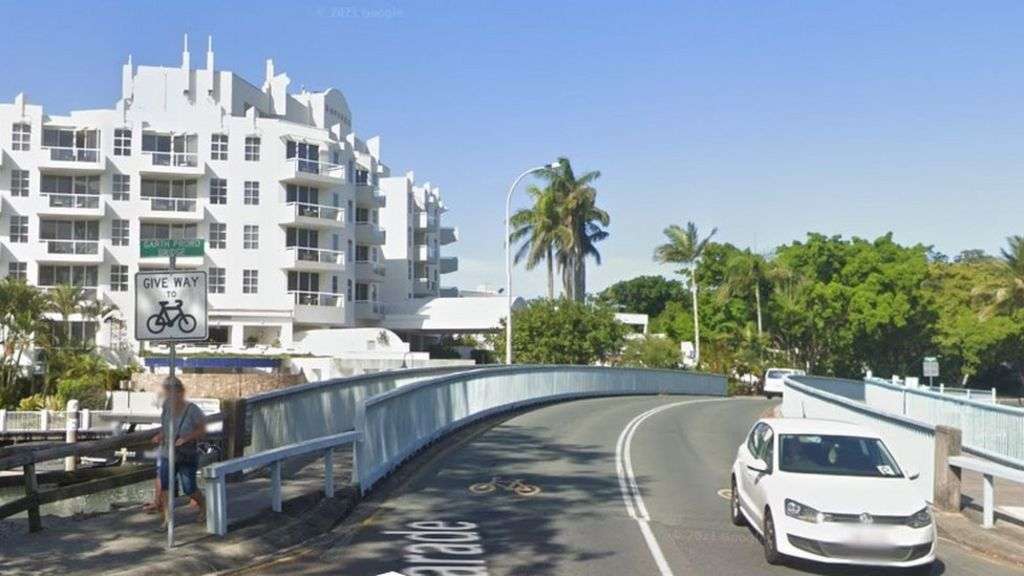The six-day junior doctors' strike is the longest period of industrial action by NHS workers in its history.
We were warned it would pose a "serious threat to patient safety". One hospital even told staff the situation could become as difficult as it was during the first wave of Covid.
How does a hospital cope when a large proportion of its medics heads out of the door and onto the picket line?
On the first day of this strike, I went to a major teaching hospital to find out how it planned to cope in the days ahead.
It was clear managers had planned well for the strike, with more consultants and other more senior medics drafted in to cover.
The emergency department seemed to be running efficiently when I arrived, despite the strike and some staff sickness. But the general manager told me a "huge team effort" was under way to keep on top of demand for care, and manage "tight" capacity.
It was to be a challenging week ahead, but senior doctors on the whole seemed to support the industrial action by their junior colleagues.
That said, an obvious and growing sense of fatigue had set in. One consultant covering in the emergency department told me he expected to work 70 hours over the six days, by which time he would be "exhausted".
"The workload is heavy and it's complex. And we can only sustain it in short bursts, doing this complete, perpetual day and night cover," he said.
As the ward and all its beds quickly filled up, he admitted the days ahead seemed "daunting".
After many months of covering strike days, hospital consultants are, like many others, keen to see a settlement. As well as covering the wards and dealing with medical emergencies, they are having to perform surgery, and even manage discharges.
Delays in patients leaving hospital were likely to clog the system and create a shortage of beds for new arrivals, I was told.
'Treading a tightrope'
As most non-urgent operations are cancelled during doctors' strikes, this hospital was prioritising cardiac and cancer surgery. But managers said they were "treading a tightrope" over decisions on whose operations should be postponed, as long waits for surgery could be life-threatening for some.
The medical director told me the trust was "on track" with cancer operations, but "by the skin of our teeth".
Meanwhile, a matron running a post-surgery recovery ward told me her nurses were having to take on emergency cases during the strike. This, she said, was a "whole different kettle of fish" which required different skills and experience. Her already overstretched staff were worried about doing their best for patients, she said, which was "frustrating".
Some other hospitals are struggling with sheer demand. Historically, hospitals are under the greatest pressure at this time of year, and this time they're having to cope without a significant proportion of their workforce.
Many trusts have this week declared "critical incidents", which means they are facing "extraordinary" pressures.
More than 20 trusts have asked the doctors' trade union, the British Medical Association (BMA), to call back striking doctors from the picket lines - requests which have largely been refused.
An internal letter I have seen, sent to staff at another major hospital, reveals a heightened sense of concern about the junior doctor strikes.
It refers to an incident response call-out plan to cover rota gaps and warned that "these are truly extraordinary measures which we have not had to implement since early pandemic times".
When the strike ends early on Tuesday morning, there is likely to be renewed and intense focus on a solution.
The BMA and the government have indicated a willingness to resume negotiations, but there may first have to be "talks about talks" to set out the terrain for discussion.
The junior doctors' committee of the BMA wants a more "credible" offer. Ministers may feel unwilling to add to the 3% extra suggested on top of the 8.8% already paid out.
Patients, staff and NHS managers can only hope that a settlement can be reached, but the outcome is far from certain. There could still be more of this trouble ahead. Consultants in England are being balloted on a pay offer and it is possible they will reject it.
Junior doctors in Wales are to stage a three-day strike from 15 January in a dispute over pay, and those in Northern Ireland are to be balloted. It is hard to rule out the possibility of continued walkouts and disruption for the NHS beyond the early weeks of 2024.








